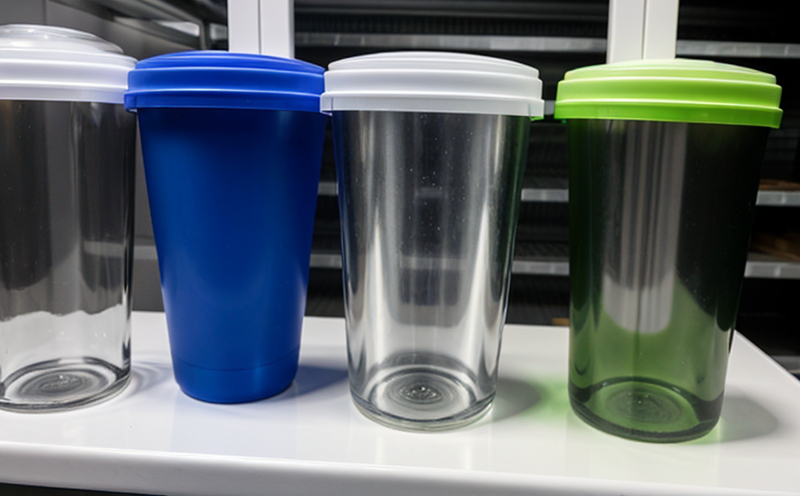ISO 720-3 Glass Weight Tolerance Testing
The ISO 720 series of standards provides a comprehensive framework for the testing and evaluation of glass packaging. Specifically, ISO 720-3 Glass Weight Tolerance Testing is crucial in ensuring that glass containers meet the required weight specifications as per international standards. This service ensures that glass packaging maintains its integrity, stability, and meets customer expectations regarding quality and consistency.
The process involves meticulous measurement of glass containers to ensure they fall within acceptable weight tolerances. This testing method helps manufacturers maintain product uniformity and ensures compliance with regulatory requirements. The ISO 720-3 standard is widely recognized and utilized by industries that rely on precision in their packaging processes, such as pharmaceuticals, cosmetics, and food and beverage sectors.
During the test, glass containers undergo precise weighing to ensure they meet the specified weight tolerance levels. This method involves several steps:
- Specimen Preparation: Glass containers are carefully prepared for testing by ensuring they are clean and free from any external contaminants that could affect the accuracy of the measurement.
- Weighing Instrumentation: High-precision scales are used to measure the weight of each glass container. These instruments ensure accurate readings down to milligram levels.
- Data Collection and Analysis: The collected data is analyzed to determine whether the glass containers meet the specified weight tolerance limits as outlined in ISO 720-3.
The importance of this testing cannot be overstated. It plays a critical role in ensuring product quality, preventing discrepancies that could lead to customer dissatisfaction or regulatory issues. In industries where precision is paramount, such as pharmaceuticals, compliance with weight tolerance standards ensures the safe and effective use of products.
Accurate glass weight measurement also enhances process efficiency by identifying any deviations early on, which can prevent costly rework or scrap. This service helps manufacturers maintain a competitive edge in their respective markets by ensuring that their products meet the highest quality standards.
In summary, ISO 720-3 Glass Weight Tolerance Testing is an essential component of glass packaging testing that guarantees product consistency and compliance with international standards. It is vital for maintaining customer satisfaction, ensuring regulatory compliance, and enhancing overall process efficiency.
Customer Impact and Satisfaction
- Enhanced Product Quality: Consistent adherence to ISO 720-3 ensures that glass packaging meets strict weight tolerances, leading to higher-quality products.
- Increased Customer Trust: Meeting international standards builds trust with customers who value product reliability and consistency.
- Reduced Rejection Rates: Early identification of deviations through regular testing minimizes the chances of packaging being rejected, thereby reducing costs and waste.
- Better Process Efficiency: By identifying issues promptly, this service helps streamline processes, enhancing overall operational efficiency.
The implementation of ISO 720-3 Glass Weight Tolerance Testing not only ensures that glass packaging meets the required standards but also contributes significantly to customer satisfaction and trust in the brand. It is a vital step towards maintaining quality and consistency, which are crucial for any packaging manufacturer aiming to meet global standards.
International Acceptance and Recognition
The ISO 720-3 standard is widely recognized and accepted across various countries, making it an essential tool for glass packaging manufacturers. This international acceptance ensures that products meeting these standards are compatible with global markets and regulatory requirements.
Adherence to this standard demonstrates a commitment to quality and reliability, which is highly valued by customers worldwide. The use of ISO 720-3 in manufacturing processes helps ensure that the final product meets high-quality expectations, thus gaining market acceptance and trust from consumers.
The international recognition of ISO standards also provides an advantage for manufacturers seeking global partnerships or expanding their business internationally. By complying with this standard, businesses can align themselves with global best practices, enhancing their reputation and competitiveness in the global marketplace.
Use Cases and Application Examples
The application of ISO 720-3 Glass Weight Tolerance Testing is extensive across various industries. Here are a few examples:
- Pharmaceutical Industry: Ensuring that glass vials and containers meet specific weight standards is crucial for maintaining the integrity of pharmaceutical products.
- Cosmetics Sector: High precision in packaging ensures product safety and efficacy, meeting regulatory requirements and customer expectations.
- Food and Beverage Industry: Properly sealed glass containers are essential to maintain food freshness and prevent contamination. This testing helps ensure that the containers meet weight standards for consistent performance.
In each of these sectors, ISO 720-3 Glass Weight Tolerance Testing plays a vital role in ensuring product quality and compliance with international standards. By adhering to this standard, manufacturers can enhance their reputation and gain a competitive edge in the market.





